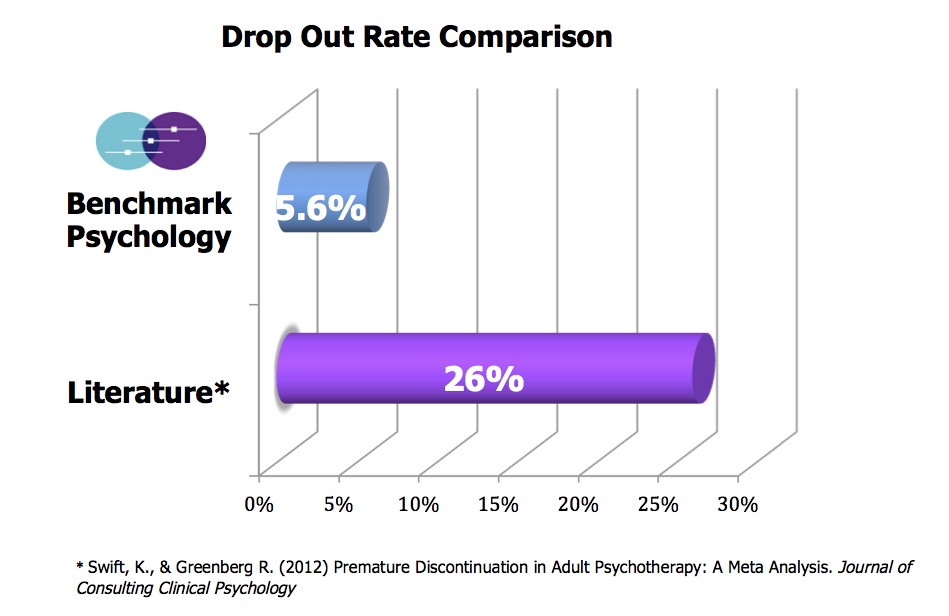Benchmark Psychology was established as a data driven practice. Not only are all of our psychologists trained in evidence-based practice techniques, we also measure their outcomes with all of their clients to identify areas in which improvements can be made. We then benchmark their performance back to the literature to ensure that each psychologist is performing at least as well as the data contained in the leading outcome research.
Today we are presenting some data on one of the simplest KPIs – drop out rate. Early drop-out is one of the leading causes of poor therapy outcomes. This is a tragedy, every time a person turns up for therapy for the first time they are pinning their hopes on a good outcome. Often their partners and children are as well. Sometimes therapy does not work, and this is not avoidable, but for therapy to fail for something as simple (and preventable as drop-out) is an enormous lost opportunity.
In large-scale effectiveness studies, it has been shown that around 30% of clients drop out before session 3. There are a number of techniques that can be employed by therapists to improve drop-out rate, and have been shown to be effective across a range of research settings.
1/ Give clients choice. Have you ever found yourself wondering whether this client would benefit more from challenging their thoughts, or learning to just accept their thoughts. There is no clear evidence which therapeutic strategy you should employ. Share the dilemma with your client, explain the options and then let them choose.
2/ Track outcomes. Clients who get no symptoms relief between session 1 and session 2 are massively more likely to drop out. It might be unrealistic to expect that you are going to cure someone in a single session, but successful therapy is normally marked by a brief feeling of relief when therapy starts. If its not there, maybe you need to change your approach
3/ Seek feedback. We misjudge client needs in therapy frequently, and most of the time we do not know that we have erred until it is too late. The best way to manage this is to have a frank discussion with clients at the end of each session, and make sure that if therapy is off track, we get it back on track as quickly as possible. Asking the following questions is a great startign point.
– Did you feel like i understood where you were coming from?
– Did we talk about what you wanted to talked about?
– Do you feel like this is going to help you?
At Benchmark we have collated our data from our first 6 months of practice to determine that our dropout rate is 5.6%. Whilst this data is only drawn from around 180 cases, it is a great start and all of our psychologists are keen to keep striving toward reducing premature dropout. In our next newsletter, we will be presenting data on overall effectiveness.


